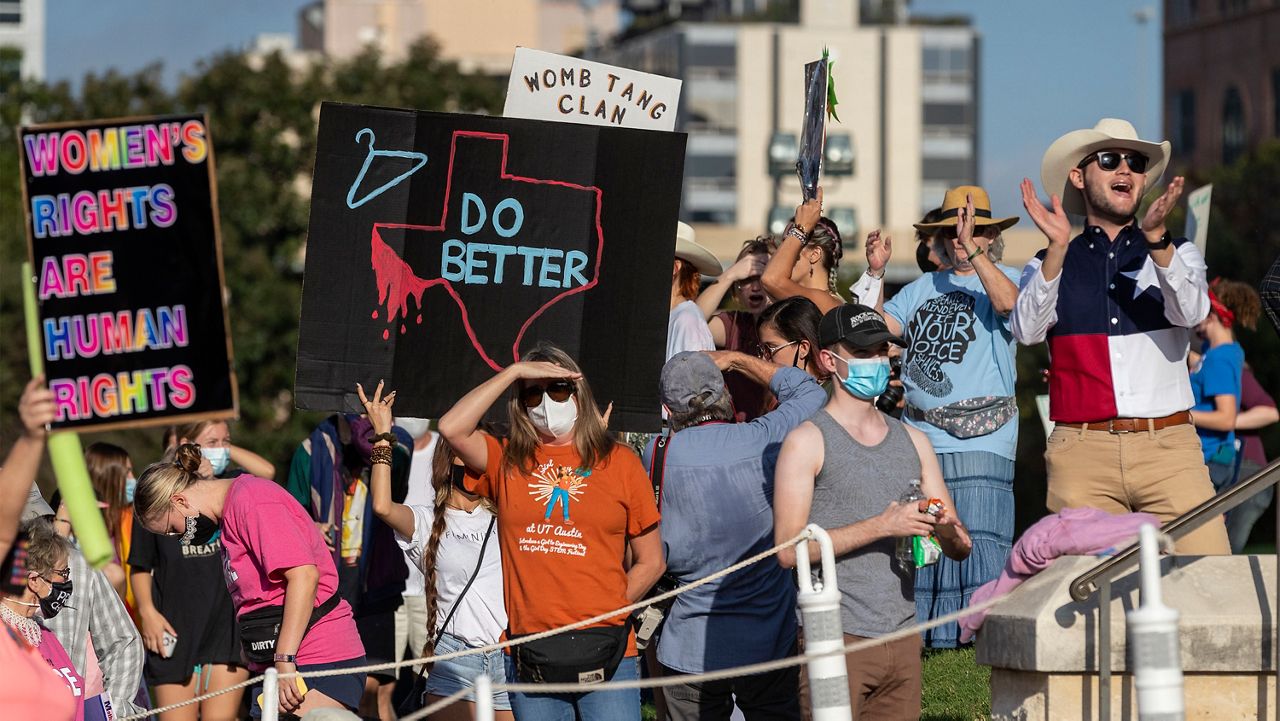AUSTIN, Texas — A state district judge ruled Thursday the enforcement mechanism of Texas' new abortion law violated the state constitution. It comes as a possible decision from the U.S. Supreme Court on separate challenges to the way the law's enforced could come Friday.
Thursday’s decision by Judge David Peeples says the ban unlawfully delegates state power to the public by enlisting private citizens to sue anyone who helps a woman get an abortion after about six weeks of pregnancy. Those who succeed could win a minimum of $10,000. It's not clear whether clinics will resume performing abortions past the legal limit. Peeples did not issue an injunction to block the law.
Instead, he made clear his ruling is about the law’s enforcement "scheme," not abortion rights.
“The federal abortion issues have been left to the federal courts,” he said. “And therefore this court will consider only SB8′s new and unique set of civil procedures.”
Planned Parenthood celebrated the ruling but said abortion services will remain “virtually inaccessible” in Texas.
John Seago, legislative director for Texas Right to Life, whose group is named as a defendant in several lawsuits filed by abortion rights advocates, said his organization has already appealed and the case could make its way to the Texas Supreme Court.
Last month, key U.S. Supreme Court justices also expressed concerns over the way the law's enforced. Peeples echoed that in his ruling.
“In sum, if SB 8's civil procedures are constitutional, a new and creative series of statutes could appear year after year, to be enforced by eager ideological claimants, who could bring suit in their home counties, where the judges would do their constitutional duty and enforce the law,” Peeples said in his order. “Pandora's Box has already been opened a bit, and time will tell.”
The U.S. Supreme Court is set to issue at least one opinion on cases on Friday, but did not specify which cases.



